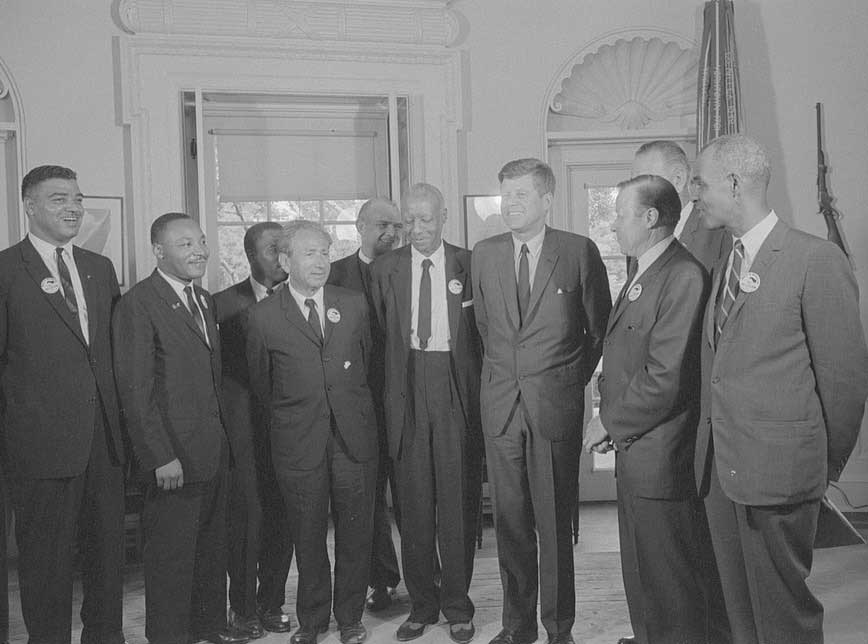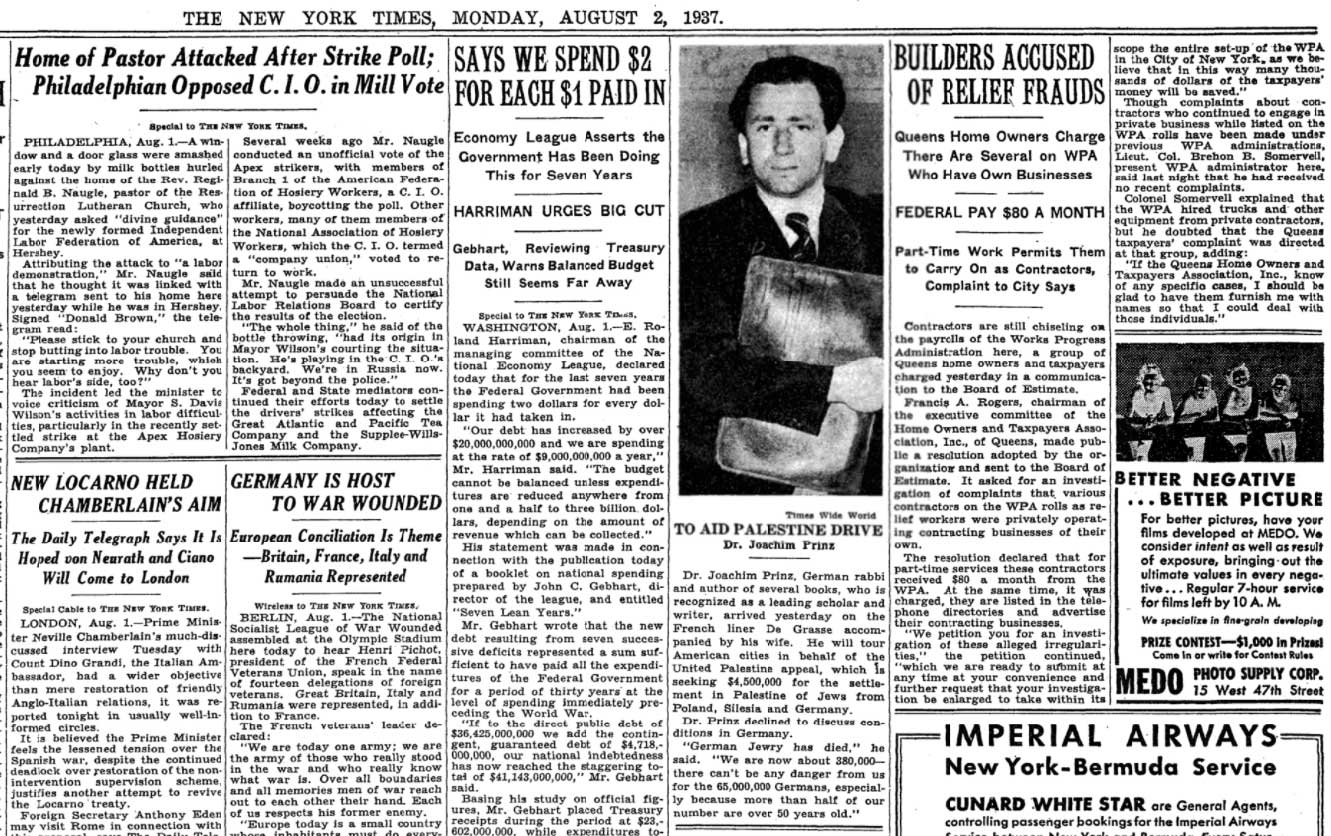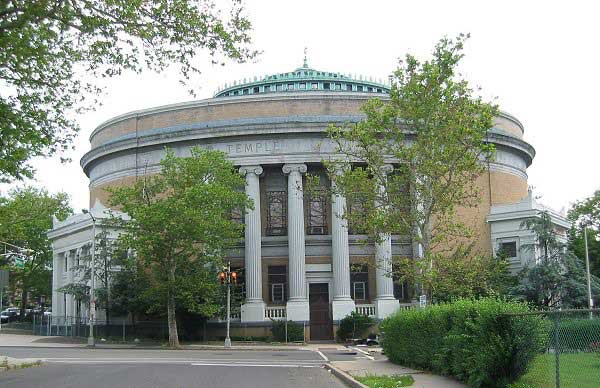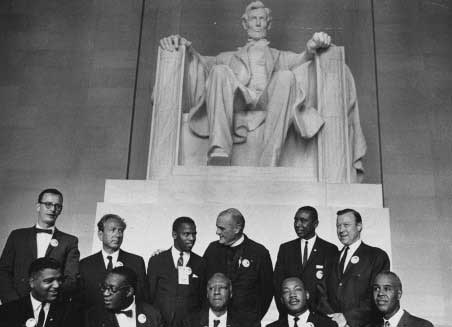
The Lincoln Monument, dedicated in 1922, has served as a stage for iconic moments in the civil rights movement. Marian Anderson. The March on Washington. The Inauguration Day speech of the nation’s first black president. Now, in the centennial year of this memorial, a Newarker comes to mind who gave an important speech there but has somehow faded from local memory.
Rabbi Joachim Prinz, a close ally of Dr. Martin Luther King, had the honor of preceding King at the lectern before the “I have a dream” speech. Prinz’s career as an author and rabbi in Hitler’s Germany made him a celebrity. His autobiography Rebellious Rabbi stands among the great works of Holocaust literature. It narrates, with disarming bluntness, the early years of his career as an iconoclast, pushing the limits of acceptability in Nazi Berlin and narrowly escaping the death camps that claimed 13 of his family members and countless students.

A year before Kristallnacht, Prinz fled with his wife and two children to the United States where he was employed briefly by the American Jewish Congress. While in Atlanta, Prinz was shocked to not only find that racism existed, but that it existed among American Jews.
“I simply did not understand nor had I known that Jews, the classical victims of racial persecution, could themselves be racists,” Prinz wrote in Rebellious Rabbi. “I said that what was evidently happening to the black people of America was the very same thing that was happening to the Jewish people in Europe.”

In 1938, Prinz accepted the position as rabbi at B’Nai Abraham, which still stands at 621 Clinton Avenue. The congregation was still reeling from the Great Depression. But with the help of Jewish leaders in Newark — like gangster Longy Zwillman and department store owner Louis Bamberger — Prinz turned B’Nai Abraham into a flourishing center of Jewish culture and philanthropy.
“It is a remarkable rotunda that seated 2,000 people,” said David Vaisberg, the current rabbi of B’Nai Abraham, which moved to Livingston. “He would pack that sanctuary.”
But it wasn’t to last. There are unsubstantiated stories about what drove Prinz to move B’Nai Abraham to the suburbs. One such rumor includes a rioter during the Newark Rebellion having thrown a Molotov cocktail into the temple.
Nevertheless, Prinz always remained spiritually connected to Newark and the plight of its people, Vaisberg said. “Prinz held on in Newark as long as he could,” he noted.

Today, a street, a statue, and a court building bear Dr. King’s name in Newark. The only memorial of Prinz is a photograph pinned to the wall of the former temple on Clinton Avenue. Vaisberg believes restoring the old synagogue, named among the state’s most endangered places by Preservation New Jersey in 2016, would be a worthy memorial to his legacy.
“If there is a memorial built, it should serve the community,” said Vaisberg, who has been in talks with Deliverance Evangelistic Center, which currently owns Prinz’s old synagogue. “Many of our members were born in Newark — it is their homeland.”